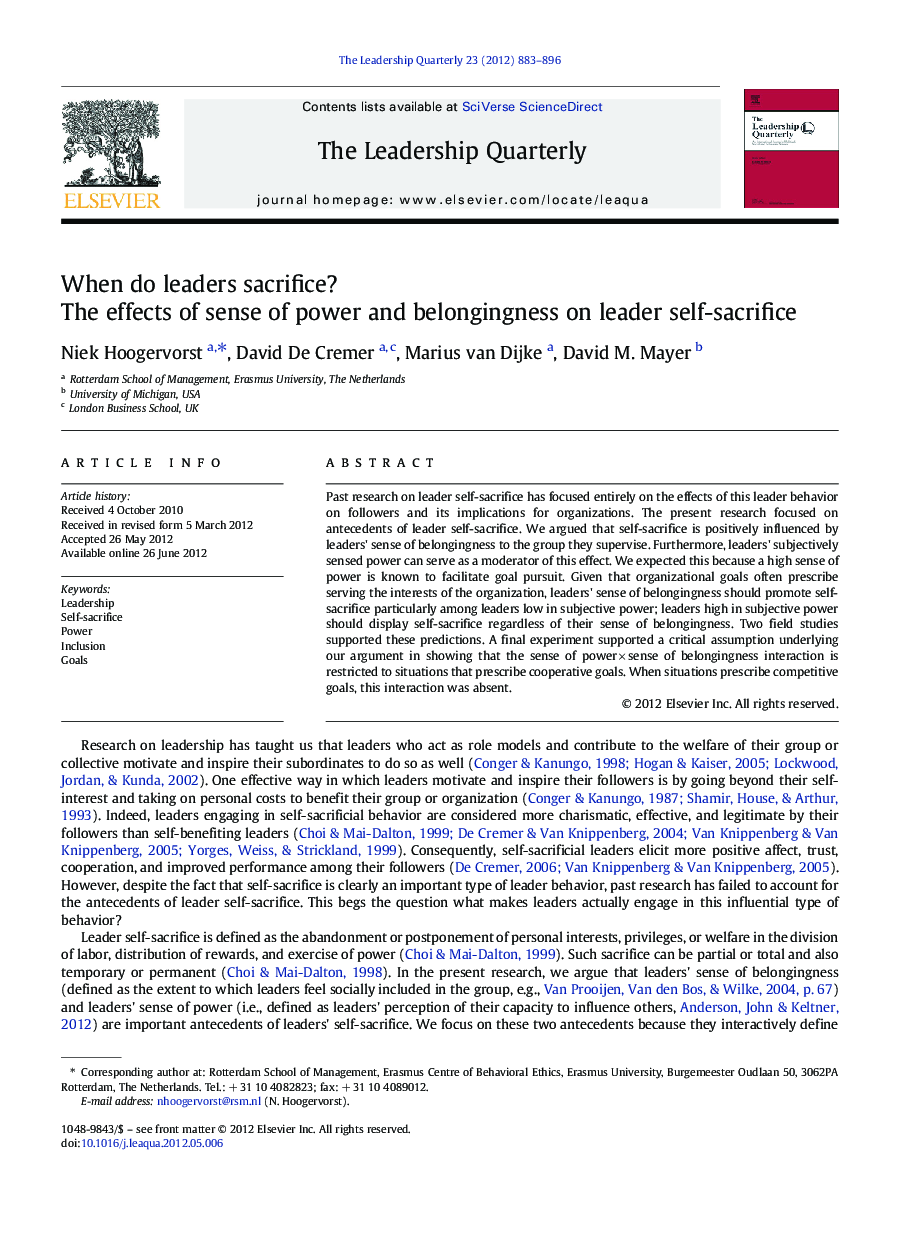| Article ID | Journal | Published Year | Pages | File Type |
|---|---|---|---|---|
| 887981 | The Leadership Quarterly | 2012 | 14 Pages |
Past research on leader self-sacrifice has focused entirely on the effects of this leader behavior on followers and its implications for organizations. The present research focused on antecedents of leader self-sacrifice. We argued that self-sacrifice is positively influenced by leaders' sense of belongingness to the group they supervise. Furthermore, leaders' subjectively sensed power can serve as a moderator of this effect. We expected this because a high sense of power is known to facilitate goal pursuit. Given that organizational goals often prescribe serving the interests of the organization, leaders' sense of belongingness should promote self-sacrifice particularly among leaders low in subjective power; leaders high in subjective power should display self-sacrifice regardless of their sense of belongingness. Two field studies supported these predictions. A final experiment supported a critical assumption underlying our argument in showing that the sense of power × sense of belongingness interaction is restricted to situations that prescribe cooperative goals. When situations prescribe competitive goals, this interaction was absent.
